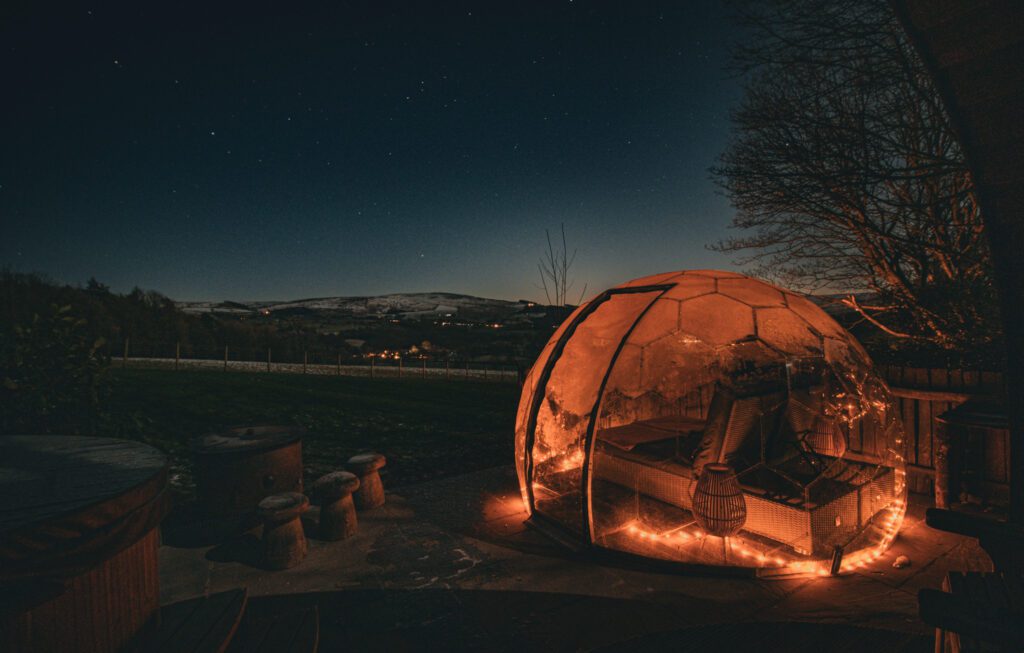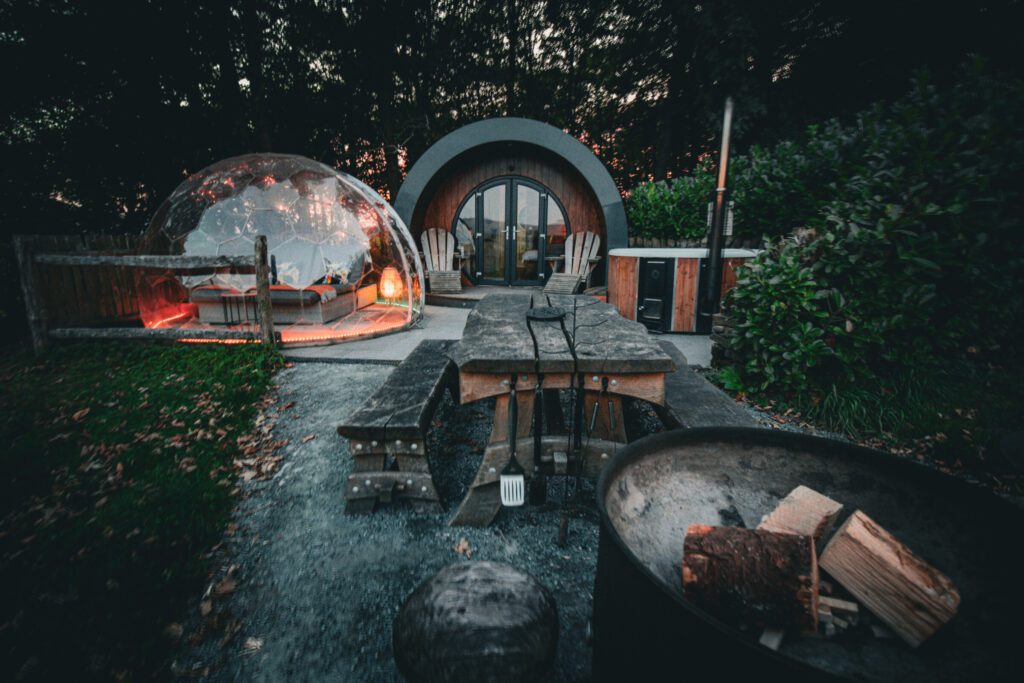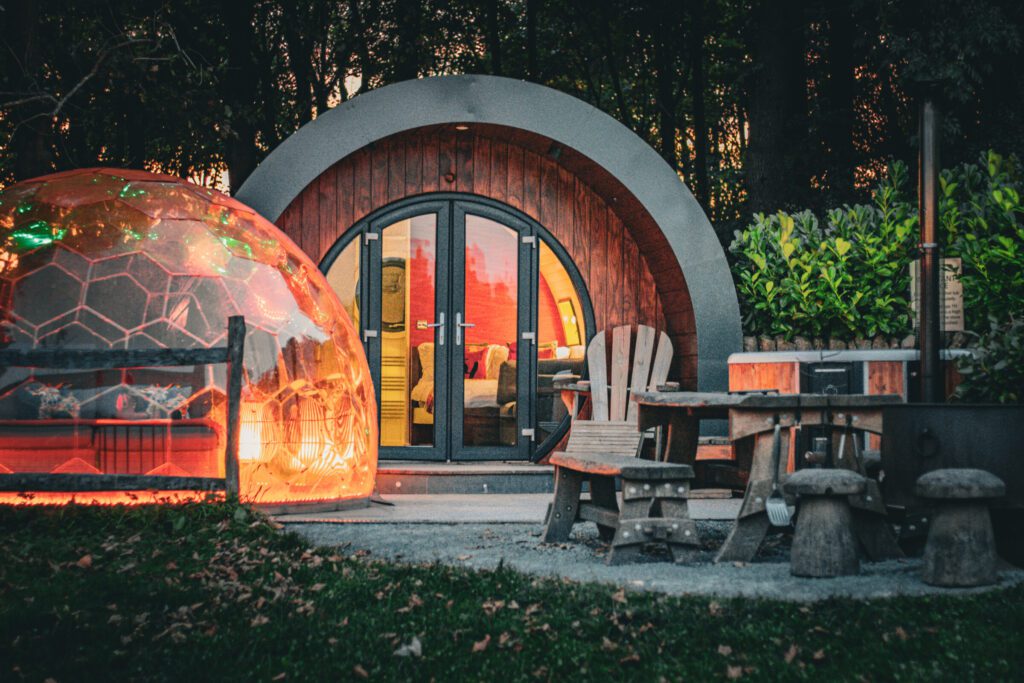
The Art of Stargazing: Enjoying the Night Sky at Our Stargazing Domes in Bolton Abbey
Stargazing is a magical experience, and at our stargazing domes in Bolton Abbey, you have the perfect opportunity to immerse yourself in the beauty of the night sky. With minimal light pollution and stunning views, this area is ideal for exploring the cosmos. Here’s a guide to help you make the most of your stargazing experience in our unique domes, complete with comfy seating and tips for identifying constellations.
1. Why Choose Bolton Abbey for Stargazing?
- Dark Skies: Bolton Abbey is renowned for its dark skies, making it an excellent location for stargazing. Away from city lights, you’ll have a clear view of the stars, planets, and constellations.
- Stargazing Domes: Experience the magic of stargazing in our Super Premium Pods, which feature specially designed star domes! These unique accommodations provide a comfortable and sheltered space to marvel at the night sky. With cosy seating and panoramic views, you can unwind and fully immerse yourself in the celestial wonders above. Book your stargazing pod today and make the most of your nights under the stars!
2. Use Stargazing Apps
Technology can enhance your stargazing experience. Here are some highly recommended apps to help you identify stars, planets, and constellations:
- Star Walk 2: This user-friendly app allows you to point your phone at the sky to identify stars, planets, and constellations in real time.
- Night Sky: This app provides detailed information on celestial events, including meteor showers and planetary alignments.
4. Identifying Constellations
Familiarising yourself with a few key constellations can enhance your stargazing experience. Here are some prominent constellations to look out for in Bolton Abbey:
- Orion: One of the most recognisable constellations, Orion features three stars that form Orion’s Belt. Look for the bright stars Betelgeuse and Rigel.
- Ursa Major: Home to the famous Big Dipper, Ursa Major is an excellent starting point for locating the North Star (Polaris).
- Cassiopeia: This W-shaped constellation is easy to spot and can help guide you to other stars in the night sky.
- Scorpius: In the summer months, look for Scorpius, distinguished by its curved tail and bright red star, Antares.
Tip: Bring a stargazing guidebook or download a star map to help you identify more constellations.
5. Night Photography Tips
Capturing the beauty of the night sky can be a rewarding challenge. Here are some tips for successful night photography:
- Use a Tripod: A sturdy tripod is essential for keeping your camera steady during long exposures.
- Long Exposure: Set your camera to a long exposure mode (10-30 seconds) to capture as much light as possible. A lower ISO setting (around 800) can also help reduce noise.
- Manual Focus: Switch your lens to manual focus and set it to infinity to ensure the stars are sharp.
- Experiment with Angles: Capture wide shots of the sky, as well as close-ups of specific constellations or the Milky Way.
6. Be Patient and Enjoy the Moment
Stargazing is as much about enjoying the experience as it is about identifying celestial objects. Take your time, relax, and soak in the beauty of the night sky. You may even spot a shooting star or two!




